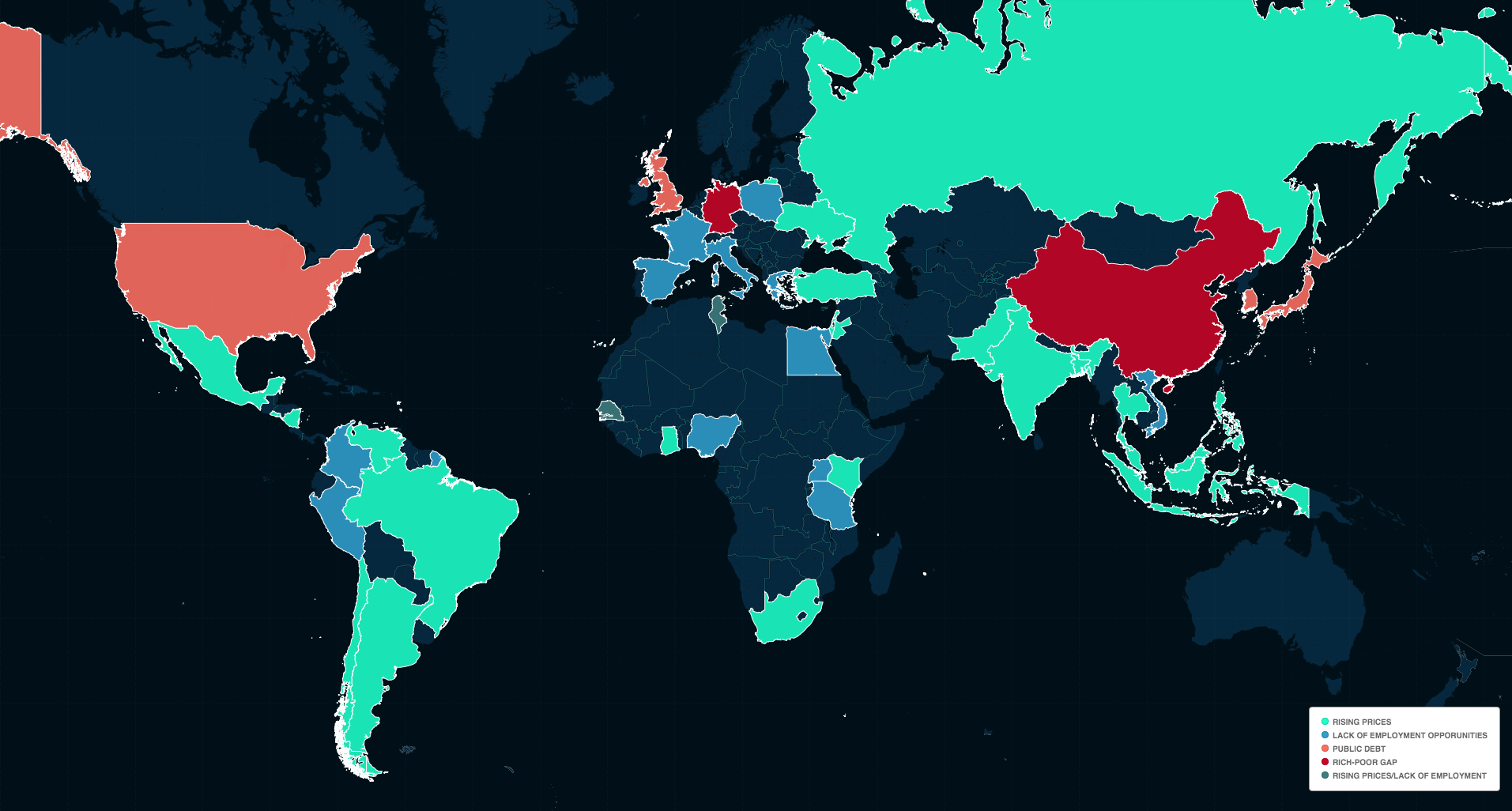Rising Prices Are The Biggest Economic Concern In Most Countries: Pew Poll
From Greece, where unemployment keeps people up at night worrying about their future, to Ghana, where citizens fear the rising price of food, economic anxiety takes many forms around the world, according to a new Pew Research Center study.
The results, released Tuesday, reflect the devastating impact of the great recession six years ago. “In most nations, people say their country is heading in the wrong direction and most voice the view that economic conditions are bad,” according to the survey of 48,643 people in 44 countries.
Respondents not only voiced disappointment in the economy specifically -- a global median of 60 percent said their national economy is performing poorly -- but also expressed broader dissatisfaction with the conditions in their home countries.
“By this broad measure of national unease, which may encompass public perception of economic, political, social and security conditions,” the report states, “half or more of the publics in 36 of the 44 nations surveyed say conditions in their society are not good.”
To be sure, the survey captured some bright spots. “A global median of 46% sees their economy picking up over the next year,” the report says. The United Kingdom, Pakistan, Uganda, Israel and Indonesia are among the countries where optimism about the economy grew between 2013 and 2014. And in emerging economies such as China, Peru and Vietnam, overwhelming majorities believe their economic prospects will improve in the next 12 months.
Still, worries about the economy are “widespread and overwhelming” around the world, according to Pew. Advanced economies are most concerned about public debt (median of 64 percent). Emerging economies view inflation (77 percent) and lack of employment opportunities (72 percent) as the biggest problems. Developing markets are anxious about jobs (86 percent) and inflation (84 percent).
Here’s how the top economic concerns around the world break down by country:

© Copyright IBTimes 2024. All rights reserved.











